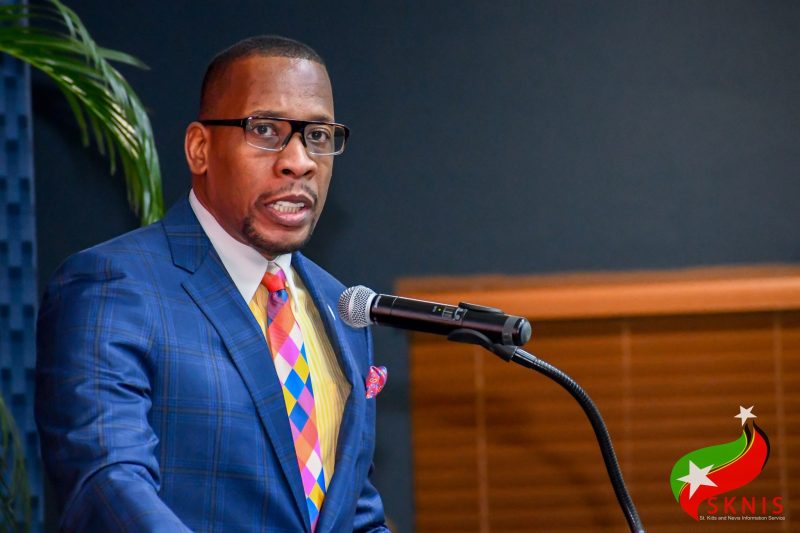On Wednesday, July 14, Vice-Chancellor of The University of the West Indies (The UWI) Professor Sir Hilary Beckles, leading the University’s Executive Management Team in a strategic planning retreat, launched Operation RR75+, the second, five years of its ten-year strategic plan.
Describing the new five-year operation plan, Operation Revenue Revolution 75+ (Operation RR75+), he noted that this was an historic moment because it is the first time in its 73-year-old history that the University will be implementing an operational plan dedicated solely and exclusively to addressing its financial sustainability.

Vice-Chancellor Beckles noted that in the prior five-year operational plan, themed “The Reputation Revolution”, the University focused on rebuilding its brand, and radically upgrading its reputation regionally and globally as a pre-condition for the second phase.
He noted, “We could not go to the region and world for resources and development partnerships with our brand and reputation in question. We had to put our house in good order before going out into the very competitive higher education world.”
“The results of this first phase were spectacular” he said. He added, “The UWI in 2019 received a ‘triple 1st ranking’ from the Times Higher Education: number 1 in the Caribbean, top 1% in Latin America and the Caribbean region, and top 1% in its global cohort (of universities between 50 and 80 years old). The UWI is now ready for a fully fledged revenue revolution. The foundations have already been laid in the prior five years, but the blinkered singularity of purpose is now before us. This is not a knee-jerk COVID-19 response.
It was on the cards in 2017 when the Triple A Strategic Plan was approved. In 2018 and 2019 my annual reports to the University Council spoke to The UWI’s ‘Corporate Bonding’ and ‘Off we go on the Revenue Revolution’, Sir Hilary noted. “The COVID-19 pandemic for us is not a game changer, but a super accelerator.
Our thoughts and strategies preceded the 2020 catastrophe.”
Vice-Chancellor Beckles invited Chairman of CARICOM, Prime Minister the Honourable Gaston Browne, to address the Wednesday Retreat to speak from the perspective of contributing governments. Prime Minister Browne embraced the University’s vision and strategy. The change process, he predicted, will see the university doing well. He noted that the governments are solidly behind the regional university in leading financial reforms for greater autonomy. He endorsed the quest to radically alter The UWI’s financial
circumstance.
Group President and Chief Executive Officer of Sagicor Financial Corporation Limited, Dr. Dodridge Miller representing the private sector perspective, spoke about benefits The UWI can reap if it learns from the Sagicor model in going from local and regional, to global in order to secure its financial future and assure the quality of its offerings to the Caribbean people.
Also, new President of the Caribbean Development Bank, Dr. Hyginus Gene Leon, speaking from a regional development perspective, commended the University for accurately reading the challenges endemic to its domestic eco-system, and operationalising an innovative response that would serve the institution and region well.
Vice-Chancellor Beckles spoke about the notion that the University cannot continue to grow, innovate, and prosper solely within its domestic financial base. He recognised the devastation of the regional economy by COVID-19 leading to governments’ inability to fund it at approved level. He then argued that the global gaze was now at centre stage within the five-year operational plan.
“There has been an explosion of innovation within The UWI during the last five years, and we are capturing this in the current strategy,” the Vice-Chancellor noted. This will be reflected in an upsurge in productivity, cost reduction, and the greater application of technologies to the new business culture.
The Vice-Chancellor noted that the current funding model, characterised by large government arrears and subsequent impairment and write-offs, produces a budgetary gap that must now be closed. The University has taken on the task of closing this budgetary gap through its new entrepreneurial projects. He further stated, “Despite the fact that the deficit drivers are outside of management’s control, we are owning them,
and taking on the project of closing the gap by generating cash to end the 30-year-old era of deficit financing and moving to balance budgeting within two years.”
Operation RR75+ which sees its first target as the 75th anniversary of the University in 2023 and looking beyond, seeks to create a funding model as follows:
50% revenue from The UWI’s contributing Caribbean governments and 50% revenue from the University’s entrepreneurial actions including:
− 20% regional student fees
− 10% international student fees
− 10% business activity
− 5% private sector investment
− 5% endowment sector (including alumni)
1. The University will see significant activity on both sides of the balance sheet, beginning with a 10% expenditure reduction per year, for two years.
2. On the revenue side, the University will implement its Ten Point Financial Plan; in this context the following projects have already been initiated:
− Each campus will develop bankable projects for income generation, and principals will be held accountable for their capacity to inject financial outcomes into campus budgets.
− The UWI Enterprise will be launched as a holding company designed to promote commercial activity across the campuses with ‘spin offs’ and incubators in all faculties.
− The University intends to take its business enterprises to regional capital markets through the offer of UWI Business Bonds and related financial instruments.
− The commercialisation of The UWI’s vast intellectual property will be initiated as soon as its IP policy is approved.
− The projected launch in 2022 of The UWI Global Campus, building on the footprint of the existing Open Campus, will drive international students into The UWI system. This will be a self-financing online ‘for profit’ campus. The Global campus is expected to deeply impact the traditional operations and financial trajectory of the University.
− There will be an intensification of entry into new regional markets, especially in the areas of micro-credentialing offerings and commercial oriented academic services.
− There will be a new drive into the endowment market, particularly to secure resources for large scale regional research, and scholarships for historically marginalised students.
− There will be a revamping of the regional and global alumni giving operations.
− New global partnerships will be placed on a sound commercial footing in order to promote a value added business culture within faculties and research institutes.
− Conversations will be intensified with governments and the private sector in order to create university owned land bank, and a private sector Investment Fund for institutional and infrastructural development.
These strategies are already in action, some more advanced than others, and are already impacting the governance model of the University, while changing its business culture.
The grand objective is to enhance the financial strength of the University, stabilise the contributions of governments, reduce costs to regional students, and transform overall governance in the best interest of the public academic institution.
According to Vice-Chancellor Beckles, “The UWI will emerge as a hybrid academy, maintaining its identity and brand as the region’s premier first class ‘public good’ university, while containing and driven by a robust commercial, income generating operation dedicated to creating a sustainable self-financing enterprise.
Operation RR75+ is therefore the tipping point in the 21st century journey and evolution of The UWI. It’s a programme of systemic change and transformation. It’s the final phase of the change culture long anticipated. It’s a partnership model in which academic leadership will partner progressively with owners of private capital with development goodwill, and with the global community with a consciousness of commitment to the advancement of the Caribbean. The ‘for profit’ element will not engage predator private wealth owners but will seek out and work with ethical development investors and those committed to Caribbean nation building.”
“The UWI vision,” he said, “is to be an ethical, excellent, entrepreneurial global academy, rooted in the Caribbean.”
About The UWI
The UWI has been and continues to be a pivotal force in every aspect of Caribbean development; residing at the centre of all efforts to improve the well-being of people across the region.
From a university college of London in Jamaica with 33 medical students in 1948, The UWI is today an internationally respected, global university with near 50,000 students and five campuses: Mona in Jamaica, St. Augustine in Trinidad and Tobago, Cave Hill in Barbados, Five Islands in Antigua and Barbuda and its Open Campus, and 10 global centres in partnership with universities in North America, Latin America, Asia, Africa and Europe.
The UWI offers over 800 certificate, diploma, undergraduate and postgraduate degree options in Culture, Creative and Performing Arts, Food and Agriculture, Engineering, Humanities and Education, Law, Medical Sciences, Science and Technology, Social Sciences, and Sport. As the Caribbean’s leading university, it possesses the largest pool of Caribbean intellect and expertise committed to confronting the critical issues of our region and wider world.
Ranked among the top universities in the world, by the most reputable ranking agency, Times Higher Education, The UWI is the only Caribbean-based university to make the prestigious lists. In 2020, it earned ‘Triple 1st’ rankings—topping the Caribbean; and in the top in the tables for Latin America and the Caribbean, and global Golden Age universities (between 50 and 80 years old). The UWI is also featured among the top universities on THE’s Impact Rankings for its response to the world’s biggest concerns, outlined in the 17 United Nations Sustainable Development Goals (SDGs), including Good Health and Wellbeing; Gender Equality and Climate Action.
For more, visit www.uwi.edu.
Discover more from Discover Montserrat
Subscribe to get the latest posts sent to your email.



